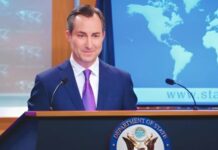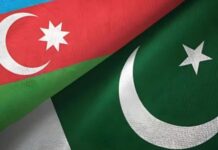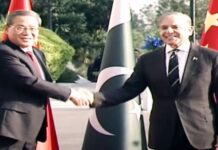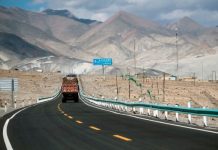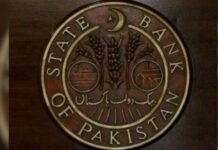ISLAMABAD, Jan 19 (NNI): Finance Minister Muhammad Aurangzeb says Pakistan plans to launch Panda Bond by June this year with an aim to enhance country’s presence in China’s capital markets.
In an interview with Hong Kong’s TVB News Channel, the Finance Minister said through the issuance of the Panda Bond, Pakistan intends to raise approximately two hundred million US dollars from Chinese investors.
The move is expected to be worth around $200 million to $250 million, but “it’s not a question of amount,” the minister said. “What is important is that we do go for an inaugural issue and then, once it’s successful, we can always keep it on tap,” he said.
Aurangzeb said that not using the world’s second-largest capital market until now had “been a miss on our part.” “We are quite keen that during this calendar year, we do,” he added.
Although Pakistan’s sovereign credit ratings have been upgraded since it secured a $7 billion bailout package from the International Monetary Fund, it has yet to break out of the “CCC” or “Caa” level as assessed by the three major global agencies. This severely constrains its options for financing in the global market.
The Finance Minister has expressed hope for reaching the “B” rating zone in due course by carrying out reforms in accordance with the IMF’s terms, he stressed the importance of “diversifying” the country’s funding sources. Hong Kong’s stock market is also part of the picture.
The minister said that an equity listing of Service Long March – a Pakistani-Chinese joint venture that makes tires for trucks and buses — in the city is in sight. “These JVs want to do equity [fund] raising, and in the international markets, Hong Kong is a very, very obvious choice for these joint ventures,” he said, eyeing future opportunities for primary and secondary listings by Pakistani companies in Hong Kong.
Pakistan has cultivated close ties with China for decades, exemplified by the multibillion-dollar China-Pakistan Economic Corridor infrastructure project.
Aurangzeb emphasized that the corridor is a “flagship” of the Belt and Road Initiative, a core economic and geopolitical drive spearheaded by Chinese President Xi Jinping.
Asked how the IMF’s conditions might affect planned projects with China – as offering new tax incentives and establishing new economic zones is not allowed – the Pakistani minister brushed off such concerns.
“It’s not really as big a deal as it’s being made” out to be, he said, since there are many existing projects that first need to be implemented. One pressing matter, however, is how to guarantee security, after a series of militant attacks against Chinese nationals and projects in Pakistan.
Beijing has repeatedly pressed Islamabad to do more to improve safety. Aurangzeb said his government attaches “the highest attention at the highest level” to the safety issue, not only for Chinese but for all foreign nationals in the country. He added that the situation on the ground “is actually much better than what we see in the news and on various channels.”
Aurangzeb says Pakistan’s government attaches “the highest attention at the highest level” to security for all foreign nationals in the country. NNI







